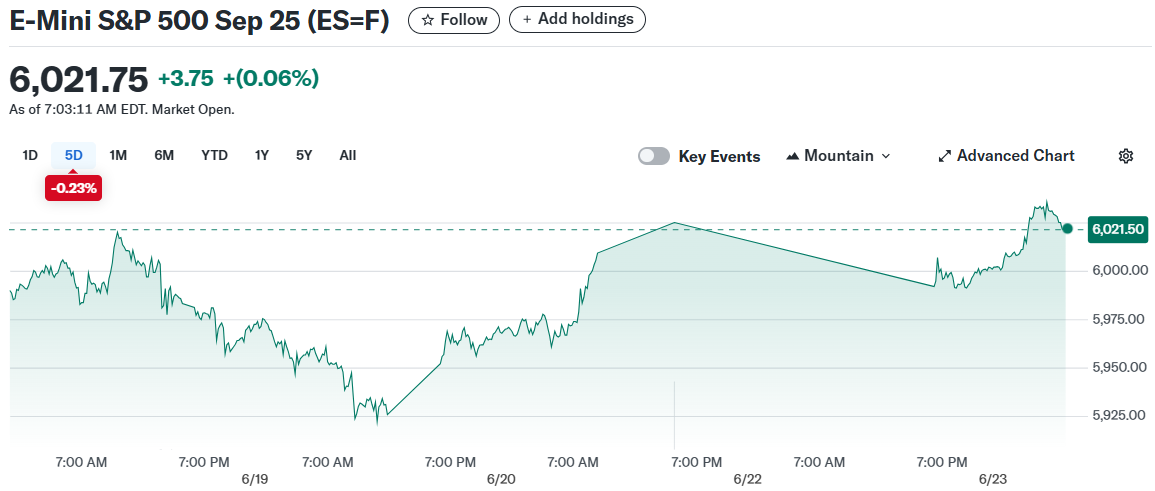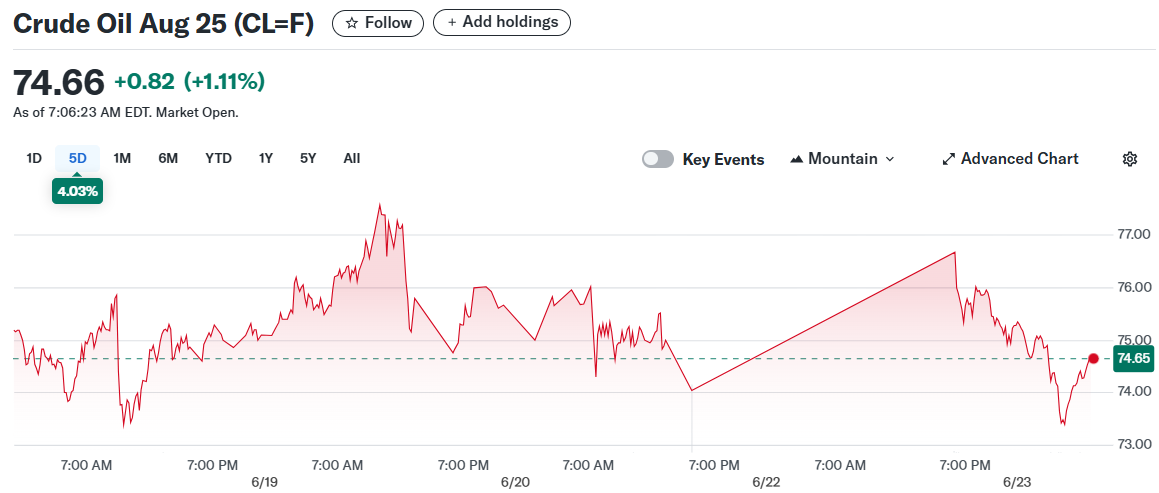TLDR
- US stock futures rose Monday morning after President Trump ordered strikes on three Iranian nuclear facilities over the weekend
- Oil prices initially jumped over 4% but then pulled back as markets assessed Iran’s likely response to the attacks
- Iran’s parliament voted to potentially block the Strait of Hormuz, through which 20% of global oil flows
- Markets appear cautiously optimistic that the conflict will remain contained rather than escalate into broader war
- Safe-haven assets like gold showed muted movements, suggesting investors remain relatively calm about the situation
Stock futures turned higher Monday morning as investors weighed the potential fallout from President Trump’s decision to strike Iranian nuclear facilities over the weekend. The attacks marked a direct US entry into Middle East hostilities.
— Donald J. Trump (@realDonaldTrump) June 21, 2025
Futures tied to the S&P 500 climbed 0.3% while Nasdaq futures rose 0.4%. Dow Jones Industrial Average futures edged up 0.1% as markets opened.

President Trump announced late Saturday that US forces had struck Iran’s three main nuclear enrichment facilities. He claimed the sites had been “totally obliterated,” though this assertion has faced scrutiny.
Oil markets showed initial volatility before settling into modest gains. Brent crude futures pulled back to near $77 per barrel after spiking above $80 immediately following the strikes.

Iran’s Response Options
The focus has shifted to Iran’s next moves both militarily and diplomatically. Iran’s foreign minister said Sunday the country reserves “all options” in response to the attacks.
Iran’s parliament has reportedly voted to approve blocking the Strait of Hormuz. This critical waterway handles approximately one-fifth of global oil and gas shipments daily.
However, experts remain skeptical that Iran will follow through on closing the strait. The country’s leaders have not made a final decision on this measure.
US benchmark WTI crude futures also lost early gains, slipping below $74 per barrel. The pullback suggests markets don’t expect major supply disruptions.
Market Assessment
Wall Street analysts say markets are treating the strikes as a contained event rather than the start of broader warfare. The muted reaction in traditional safe-haven assets supports this view.
Gold prices ticked lower amid softening demand for safe investments. The 10-year Treasury yield climbed just 2 basis points to 4.40%.
“Markets appear to be treating the US strikes on Iran as a contained event for now, rather than the start of a broader war,” Saxo strategist Charu Chanana told Reuters. “The muted haven flows suggest investors are still assuming this is a one-off escalation.”
Deutsche Bank strategist Jim Reid noted the key question centers on whether Iran will “weaponize oil” through strait closure. Financial markets appear to be pricing in a lower probability of such action.
The dollar strengthened 0.7% against a basket of major currencies. This move typically occurs when investors seek stability during geopolitical tensions.
Oil price movements remain crucial for Wall Street given potential inflation impacts. Higher energy costs could prompt the Federal Reserve to delay planned interest rate cuts.
Trump threatened Iran with additional attacks if the country does not quickly pursue peace negotiations.






